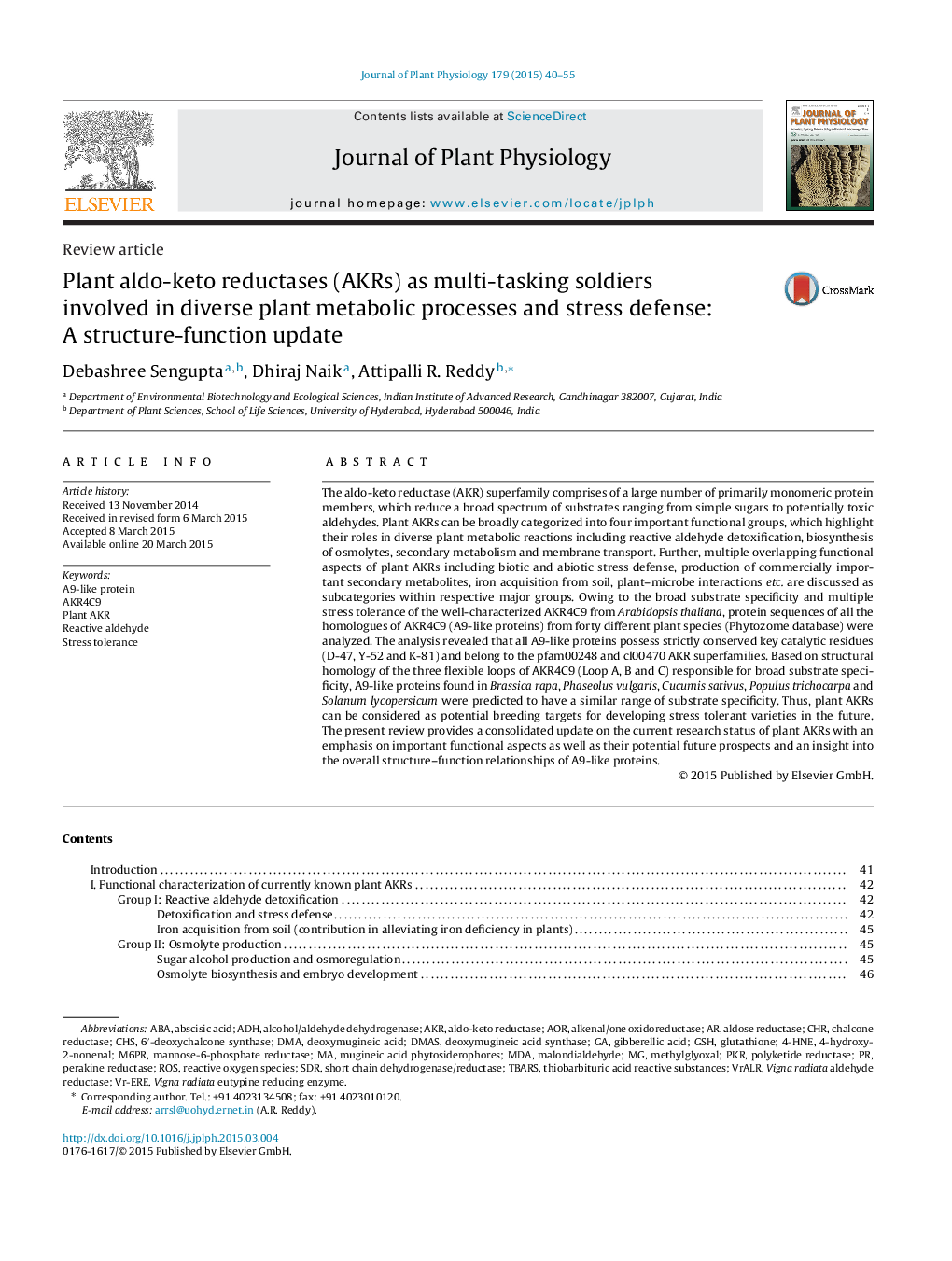| کد مقاله | کد نشریه | سال انتشار | مقاله انگلیسی | نسخه تمام متن |
|---|---|---|---|---|
| 2055618 | 1543897 | 2015 | 16 صفحه PDF | دانلود رایگان |

The aldo-keto reductase (AKR) superfamily comprises of a large number of primarily monomeric protein members, which reduce a broad spectrum of substrates ranging from simple sugars to potentially toxic aldehydes. Plant AKRs can be broadly categorized into four important functional groups, which highlight their roles in diverse plant metabolic reactions including reactive aldehyde detoxification, biosynthesis of osmolytes, secondary metabolism and membrane transport. Further, multiple overlapping functional aspects of plant AKRs including biotic and abiotic stress defense, production of commercially important secondary metabolites, iron acquisition from soil, plant–microbe interactions etc. are discussed as subcategories within respective major groups. Owing to the broad substrate specificity and multiple stress tolerance of the well-characterized AKR4C9 from Arabidopsis thaliana, protein sequences of all the homologues of AKR4C9 (A9-like proteins) from forty different plant species (Phytozome database) were analyzed. The analysis revealed that all A9-like proteins possess strictly conserved key catalytic residues (D-47, Y-52 and K-81) and belong to the pfam00248 and cl00470 AKR superfamilies. Based on structural homology of the three flexible loops of AKR4C9 (Loop A, B and C) responsible for broad substrate specificity, A9-like proteins found in Brassica rapa, Phaseolus vulgaris, Cucumis sativus, Populus trichocarpa and Solanum lycopersicum were predicted to have a similar range of substrate specificity. Thus, plant AKRs can be considered as potential breeding targets for developing stress tolerant varieties in the future. The present review provides a consolidated update on the current research status of plant AKRs with an emphasis on important functional aspects as well as their potential future prospects and an insight into the overall structure–function relationships of A9-like proteins.
Journal: Journal of Plant Physiology - Volume 179, 1 May 2015, Pages 40–55